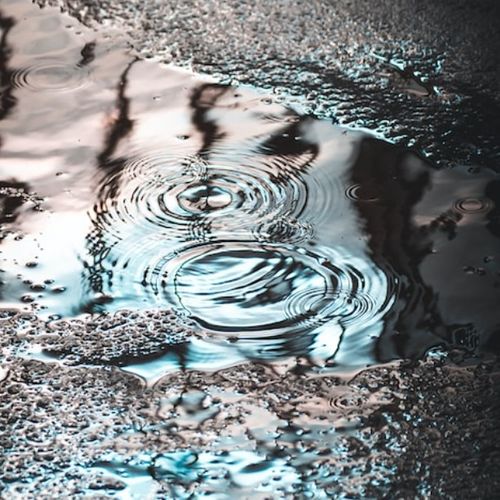Petrichor : The Unmistakable Smell of Rain
Aug 25, 2022 · 2 mins read
0
Share
Have you ever known it was raining by that distinctive aroma of clean air and wet earth left behind? Maybe after a light shower you’ve taken a deep breath and inhaled the peculiar, soily scent. That unmistakable smell is known as petrichor.
Save
Share
Raindrops trap tiny air bubbles beneath them as they land. These bubbles force their way to the surface in an aerosol of microscopic droplets. Scent molecules fill the air and geosmin, a type of alcohol molecule with a very strong smell, is released by bacteria as they die.
Save
Share
In 1964, Australian scientists managed to extract a fetid yellow oil from dry rocks and soil and called it petrichor, from the Greek word ‘petra’ meaning stone & ‘ichor’ meaning watery discharge. In mythology, ichor is a golden fluid that flows in the veins of gods and immortals.
Save
Share
Petrichor is stronger with the first rainfall after a dry spell, and even more present in spring. When soil is very dry the bacteria are more plentiful, and rain after a long drought speeds up a plants metabolism, releasing aromatic plant oils which emit their own sweet scents.
Save
Share
Rain also improves air quality, as dust and other particles are carried away. There are many bionomic processes taking place in nature and the atmosphere which are aided by rainfall. These processes combine to form that unique muddy, earthy redolence we perceive after a drizzle.
Save
Share
Geosmin, which means 'earth smell', is universally common. The particular smell of rain is identifiable all over the earth. Scientists say geosmins main function deters predators and attracts insects which disperse spores. The same compound gives beets their earthy taste.
Save
Share
You may have noticed a similar peculiar scent right before a downpour happens. This is not petrichor. It is ozone, a type of oxygen produced by lightning and atmospheric gases. Insects and birds change behaviour prior to rain too and plants show the underside of their leaves.
Save
Share
The human nose is so sensitive to petrichor that we can detect geosmin at concentrations of less than 2 parts per trillion. That’s about as much as a teaspoonful in 200 Olympic-sized swimming pools! Geosmin may be the reason humans can often sense tainted water.
Save
Share
The smell of rain is so enchanting it was captured for use as a body scent from at least the 1960s. 'Matti ka atta' is a petrichor-based fragrance first produced in Uttar Pradesh, India. Today, geosmin is frequently used as an ingredient in perfume.
Save
Share
Next time it rains, wait for the shower to stop, take a step outdoors and fill your nose with the smell of petrichor. The deep, fresh and earthy scent is a uniquely pleasant sensation caused by a series of fragrant chemical compounds and fascinating ecological processes!
Save
Share
0
